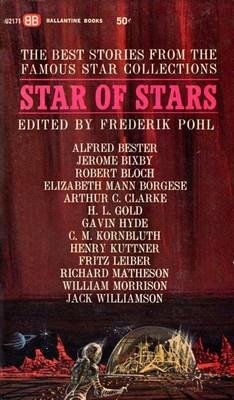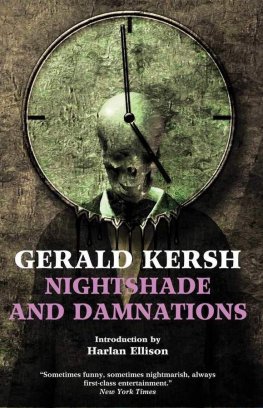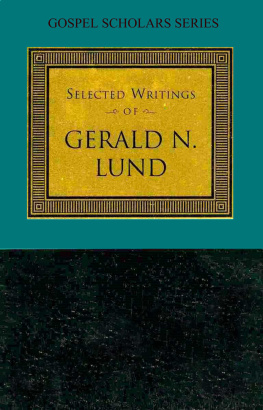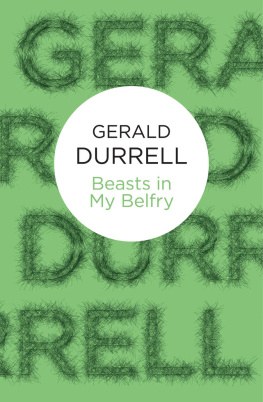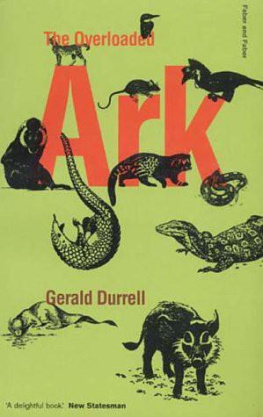Selected and with a Preface by Simon RavenGERALD KERSH tells stories. Good and bad, long and short, neat, dramatic, bizarre, perverse, scientific, supernatural, historical, they have been flowing out almost without pause for the last twenty years. They range from full-length novels, such as the recent Fowlers End or the celebrated novel-documentary They Die with their Boots Clean, to little jokes of some fifteen hundred words. In between, there are short novels of perhaps 30,000 words, long short stories of 10,000 or 12,000, and a great many short stories of what one might call classical length (4,000 to 8,000). All of them, from the novels proper to the little jokes, have three things in common: they are vigorous, they are inventive (sometimes to a point near lunacy), and they can be read with the greatest of ease.
First of all, then, Kershs vigour. This is particularly in evidence when he is describing circumstances of squalor Busto is a Ghost His phrasing, when he comes, for example, to describe a sleasy lodging house and its verminous inhabitants, has a near-Falstaffian richness which he never quite achieves at any other time. Which is not to say that he ever becomes flaccid. He may be careless, he may overplay his hand, he may be downright embarrassing; but he is never floppy. And indeed he could not afford to be: for Kershs people, whether squalid or not, are always on the go; cheating, drinking, cruising, fornicating, making money or spending their immortal souls, they live in a world where it is always necessary, for good or ill, to act; and if they or their creator lost their vigour for one moment, then they would surely die.
As for Kershs invention, this ranges from the ingenious devising of trick endings (The Sympathetic Souse) to the skilful presentation of phenomena. Occasional and brief excursions into Science Fiction (Men Without Bones) confront one with tiny yet cosmic horrors, at first sight of no importance in the scheme of things, but disquieting for days in their concentrated malevolence. With ghosts, again, he has a canny knack of persuasian (Carnival on the Downs). But it is with material and familiar freaks (human or otherwise) that he is at his best (The Crewel Needle, The Queen of Pig Island); for these are ready to hand and need not be created afresh, so that all the force of Kershs invention is set free simply in order to manipulate them, to organise them to the most cruel advantage and to bring them to the most unlooked-for end.
And if, thirdly, you doubt me when I say Kersh is easy to read, then I shall merely invite you to examine this selection of his work. It is made up of what I myself consider to be the best of all his short stories published between 1939 and 1960. I have included one little novel of some 22,000 words (Clock Without Hands) and three stories of just over 10,000 words. But if Kersh is a good stayer, he is nevertheless better over the shorter distances: most of the stories in this book are between 4,000 and 8,000 words, and it is in these, I think, that he is to be found at his most vigorous, Rabelaisian, readable, inventive and bizarre.
SIMON RAVEN
ONE day I asked Adze if he had ever known what it feels like to have a friend. I have had a friend; one friend, once, he replied.
Whom you loved?
Loved? He paused. Well, yes: whom I loved.
A woman?
Adze sneered. A woman!
A man, then.
Man? T foo! Men are dust and ashes.
Not a child, I suppose?
Children! Ptoo! He spat. People are weeds, and children are the seeds of weeds.
I should have guessed, I said. Horse or a dog.
Horses and dogs are as bad as men. They like men! They admire men! Fools! Ketcha! He seemed about to burst with pent-up scorn.
He was silent for a while; for as long as it takes to smoke a cigarette he said nothing. There was always an oppressive and threatening quality about the silences of Adze. They made you think of wildernesses of broken stones; there was death and desolation in them. Then he laughed, and his laughter was short and harsh, like something splitting in a bitter frost. Friend! he said .
Friends are for cowards. You have friends because you are afraid to be alone. You value your friends because they are a kind of mirror in which you see reflected the best-looking aspects of yourself. Friends! And as for women, bah! What is there in a woman that a man should lose his head over her? A woman is impossible to live with. She is always talking. You support her, and she expects you to be devoted to her body and soul. She smells. She gets fat. She whimpers like a pup, that she is all yours and the moment your back is turned her lover comes out from under the bed. Listen to me. I am a very old man. I have known a lot of men and women, but never any to whom I could offer love or friendship. No, I am alone, me! Yes, I have known everybody, high and low, in all parts of the world in fine houses and in gutters, on mountains and plains, in forests and on the sea, but I have always been alone, alone with myself.
Always, except just once. This was more than fifty years ago. I left Russia from Vladivostok, working on a stinking ship that sailed for the South Seas down past the Sea of Japan and the Riu-Kiu Islands. The name of the ship was The Varvara. The captain was a pig, and the crew were also pigs. The purpose of the voyage was to trade among the Islands. We had tobacco, beads, hatchets that would not cut, and some barrels of alcohol. This rubbish we intended to exchange for such things as pearls because our white women loved to hang their necks with these little white sicknesses out of the bellies of oysters, and the South Seas are full of pearls and other nonsense.
Well, it was an unlucky voyage. Before we were out of the Sea of Japan we hit a storm, and the ship was rotten and the cargo was badly stowed, so that we were in a bad way when the winds died down. Everybody said that it was madness to go on, but the Captain swore that he would put a bullet into the guts of the first man who might dare raise a voice. I did not care. I had a feeling that, whoever died, I should live. So we repaired The Varvara as best we could and went on. And so we came to grief. Do not ask me where we were, because I do not know. Another wind came, howling like a devil out of hell, and it seemed to smash us like a bomb. The end of the matter was, that the crew, pigs and fools that they were, gave up hope. They cracked one of the bottles of vodka, and drank it out of their cupped hands, as the ship foundered. They died singing of sweet kisses, blue-eyed maidens, and love in the meadows, while the sharks were crowding round them like Society ladies around a millionaire. That was the end of them. Good. But the Captain, as I foresaw, had taken care of himself. He and the first mate got into the one remaining boat. Needless to say, I got in with them. They had half a mind to toss me out, only there has always been something in my face which makes men think twice before playing such games with me. The sea was heaving, but growing still now. Our little boat went up in the air like a cork and then down again between cliffs of green water. Yes, the sea is very powerful. The last I saw of our ship was a kind of scum of bits of wood. Good. Then I was alone with the other two men in the boat, and they were fast asleep exhausted. So I slept too. That was just before dawn. I awoke with the sun on my face. It was like the open door of a blast furnace when they let out the molten iron. The Captain awoke too, and said: Open that locker behind you and pass me the water.
I did so; that is to say, I passed him one of two water-kegs in the locker, and also took out a little barrel of biscuits. He and the mate drank like fishes, and then handed me the keg. I also drank. Then we ate some biscuits. The sun rose higher. We lay and gasped. There was only half a gallon of water left in the keg, and the devil knew where we were. I said nothing. The day passed, and then the night, and then another day. The keg was drier than bones in a desert.



